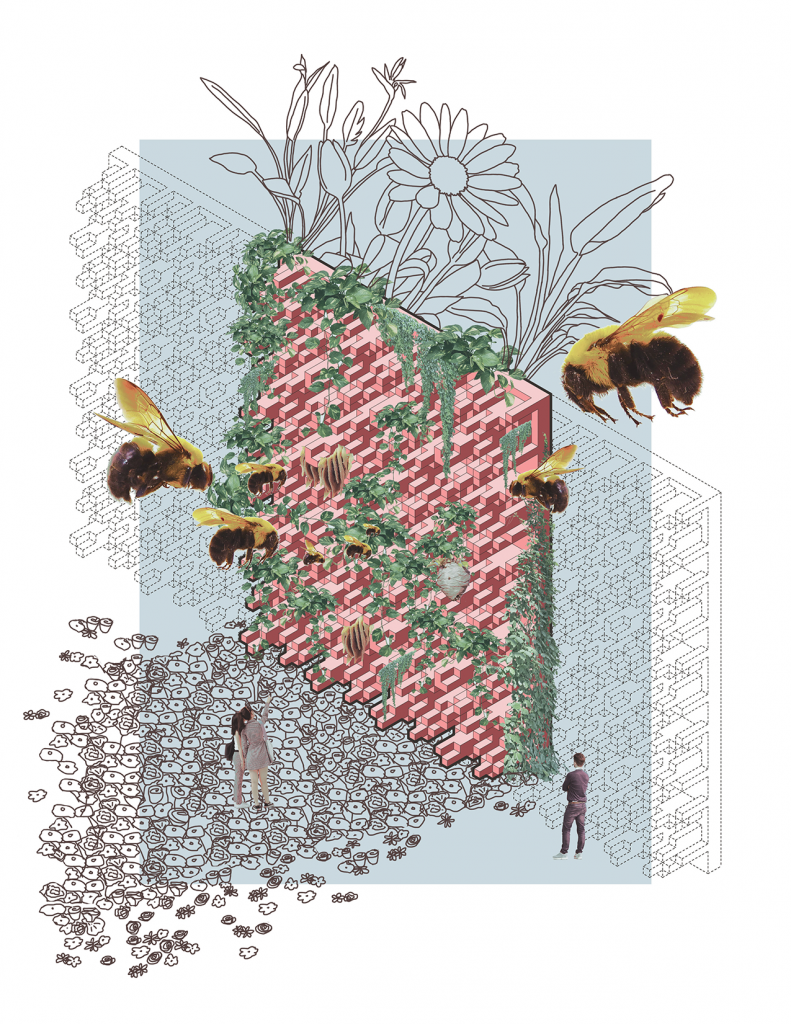Winners of the 2023 Azrieli Thesis Support Grant
Feb 3, 2023
Ten students in the professional master’s program in the Azrieli School of Architecture & Urbanism have received a 2023 Azrieli Thesis Support Grant.
The grants recognize the promise of future work as expressed in the Colloquium 2 Reflective Document submitted in December and a grant application. The document reflects the student’s master’s thesis as presented at Colloquium 2, providing details on the thesis position and approach to design research as evidenced through drawings, photographs, images, and writing.
Each winner receives $1,000. The grants are intended to support expenses associated with furthering thesis projects in the winter semester.
The applications were assessed by a jury comprised of three alumni who have not been involved in supervising the work. See their profiles below.
Preparing for the “New World”
Harvesting Ocean Plastics to 3D Print Islands for Areas Suffering from
Rising Sea Levels
Student: Corina Amarioarei
Advisor: Associate Professor Zachary Colbert
My thesis focuses on the architectural potential of transforming ocean plastics into 3D-printed islands. Through a series of testing and prototyping, I will examine the modularity and viability of the island’s form. These islands are designed to be dispatched to areas suffering from loss of land due to rising sea levels. Although a land reclamation project, emphasis will be put on maximizing the ecological opportunity for biodiversity, both above and below sea levels.
Jury Comments: The project engages with tangible and original subject matter in a bold and interesting proposal. The work is relevant to current discourse and has tapped into United Nations sustainability goals in a productive way. The drawings and figures are very nicely represented, and the research question is clear.
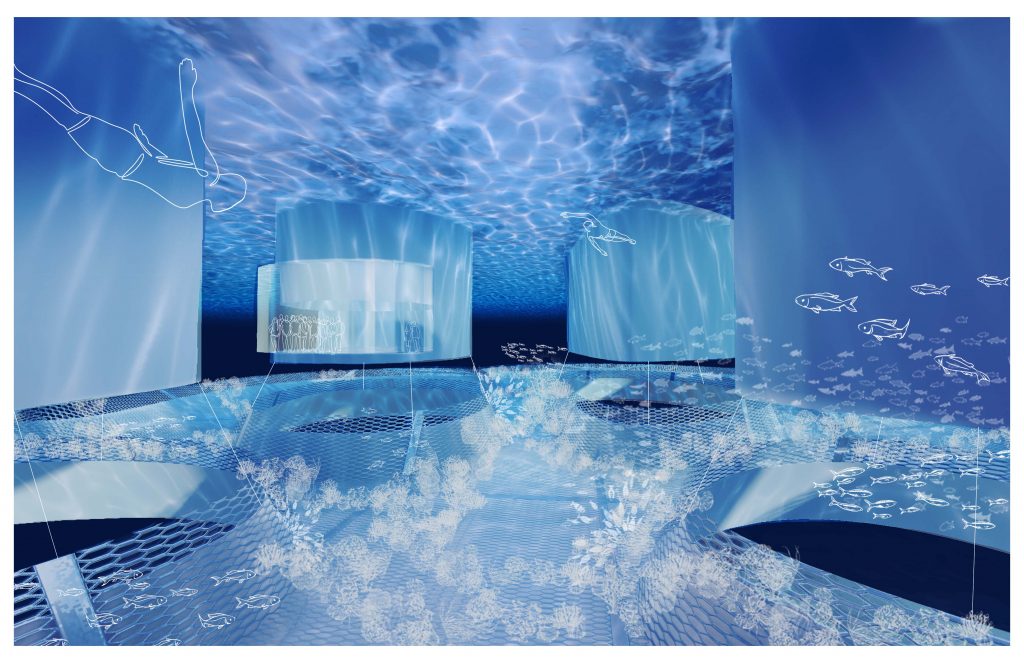
Reframing Ageing in Place:
Supporting the Ageing Chinese Population in Downtown Toronto
Student: Sarah Chin
Advisor: Assistant Professor Natalia Escobar Castrillón
Architecture has limited the older population rather than seniors being restricted in architecture. The absence of support infrastructures for the growing aging community will be explored through design speculations of a housing typology in Toronto’s Chinatown. An emphasis within the design and analysis is placed on health and well-being through a holistic lens. My lived experience with an aging family member in Canada and my local volunteering experiences ground this thesis.
Jury Comments: The potential of the work is clear and engages a very rich, timely, and important subject matter. Very relevant. Engaging the immigrant reality in Canada in this topic is productive, and the problem is approached very architecturally.
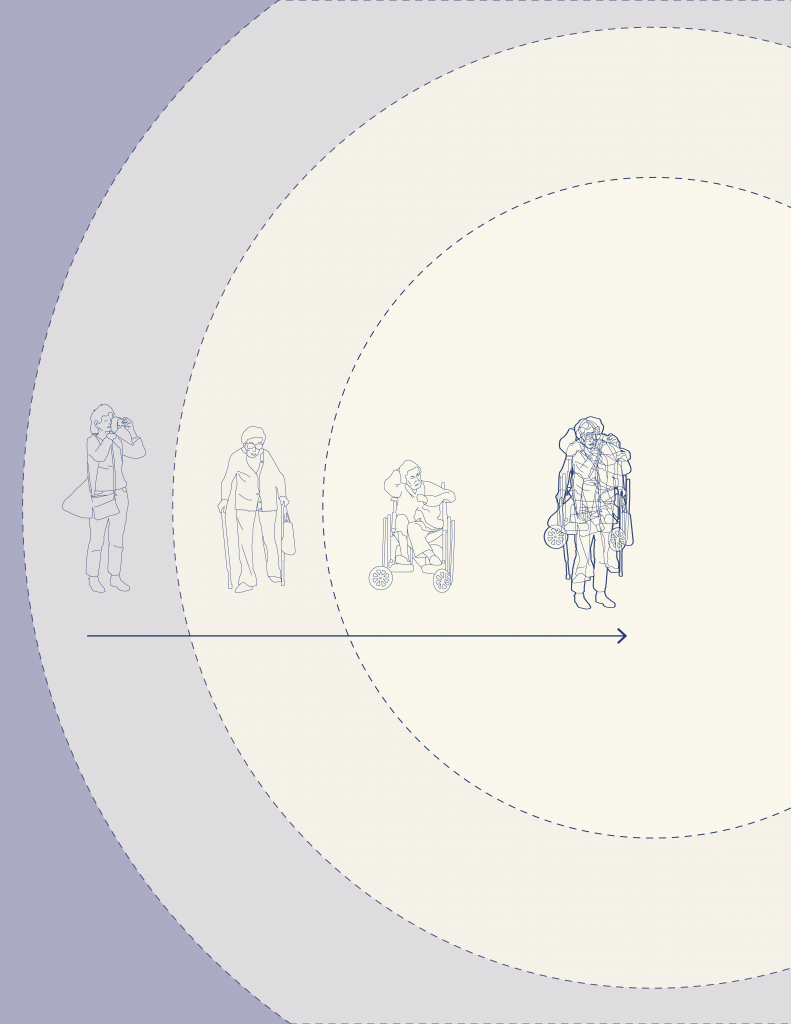
Architectures of Care:
Understanding Community and Quality of Life in Guryong Village
Student: Jonathan Chung
Advisor: Assistant Professor Jerry Hacker
Using Guryong Village (a self-built community in Seoul) as the site of investigation, this thesis explores the spatial relationships and concepts of community between the state and the city’s ignored and most vulnerable citizens. To what degree might architectural intervention enhance community and daily life for the forgotten? By understanding the cultures and circular economies of the village and Korea, this work hopes to bring an understanding of the value of self-built spaces and their communities.
Jury Comments: This is an emotionally charged polemic about the study of community, and the document showcases excellent writing. This work engages with a global social consciousness related to the impacts of climate change on marginalized communities.
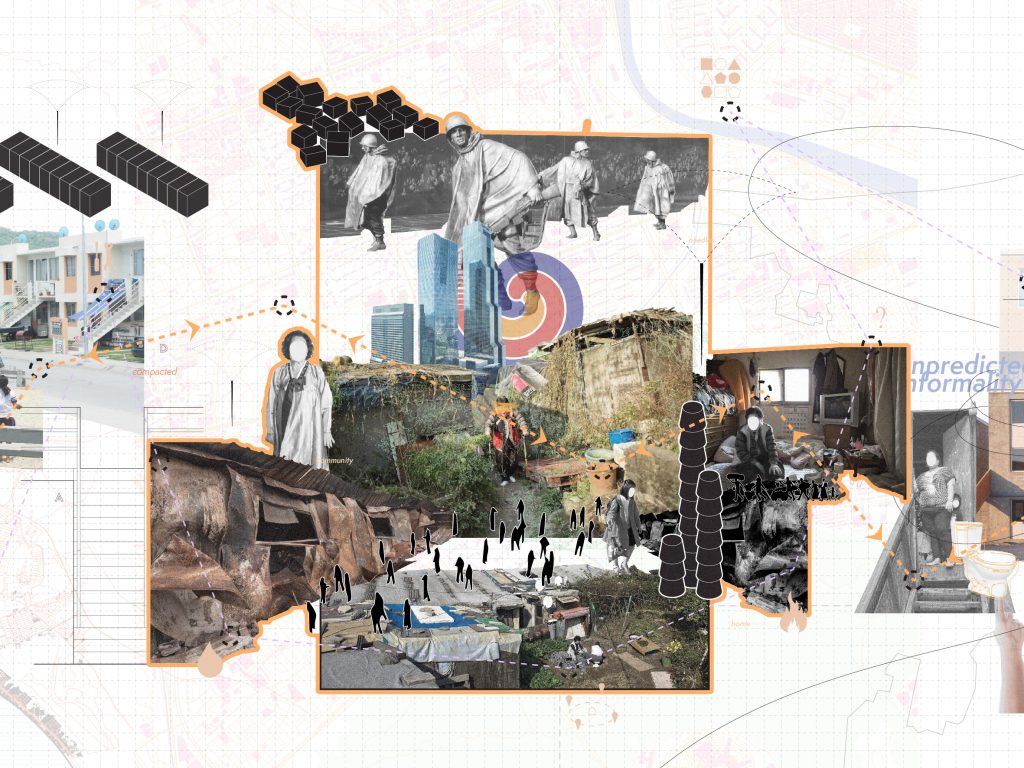
Ecological Connections:
Exploring the Relationships of Landscape Protection and Human Interaction in Rouge Urban National Park
Student: Megan Combaluzier
Advisor: Associate Professor Lisa Moffitt
This thesis explores the connection between people and the environment in Rouge National Urban Park, a highly human-influenced natural landscape. Nestled within urban sprawl and farmland, Rouge National Urban Park is the amalgamation of rich biodiversity, social activism, and tourism. Guided by ecological integrity, this thesis strives to enhance the visitor experience, engagement, and education, by reinterpreting ideas of a visitor centre and what it means to visit a place.
Jury Comments: The jury appreciated the site sensitivity and the importance of site visits. There is a lot of future work potential within human nature overlap the thesis is investigating. The proposal is landscape driven and feels tangible and real.
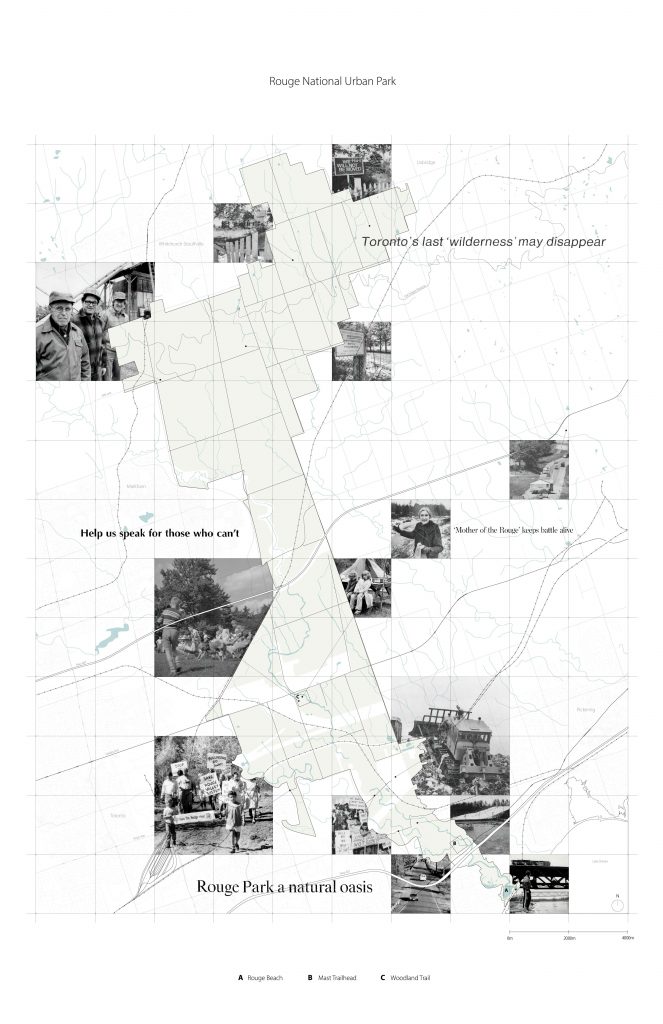
Body Territory:
Female urbanism in the Wellington Basin
Student: Chloé Lévesque
Advisor: Associate Professor Janine Debanné
The thesis considers the less visible members of society, and, more generally, persons who dwell on the margins and will explore the need for connectivity through safe and inclusive design strategies in Pointe Saint-Charles (Montreal). Employing a poetic language of stems, the routes traverse adjacent neighbourhoods and touch down in significant locations, including spaces of female memory like the nearby Five Roses silos, before arriving at the Wellington basin development.
Jury Comments: The work is focused on marginalized and vulnerable sectors of the population, and the historical context in the document is very interesting and grounds the work. The urban study models were excellent and helped to reveal the potential of the project.
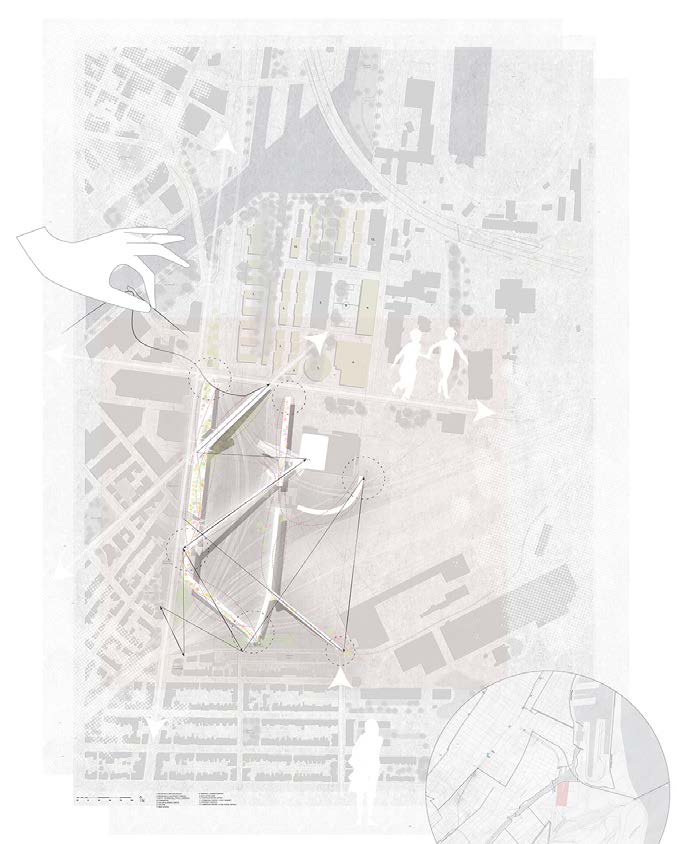
Cosmovisions and Memories:
World-Building in the Age of Erasure
Student: Daniela Olivares
Advisor: Assistant Professor Menna Agha
I activate this research to claim and be claimed by my Pipil culture and reckon with the erasure faced within the nation-state of El Salvador. This thesis employs a move away from the dominant epistemology of the west for a re-working of centering and learning from Indigenous epistemologies. Cosmovisions are one of the many forms of Indigenous resistance and make way for a future re-composition of architecture that stems from Indigenous imaginaries.
Jury Comments: This is a timely and pressing topic and engages embodied emotion in the historical context. The document is well-written and accessible. The artifacts produced are beautiful and the work has a gallery quality. The jury appreciated the personal connection to the investigation and its authenticity.
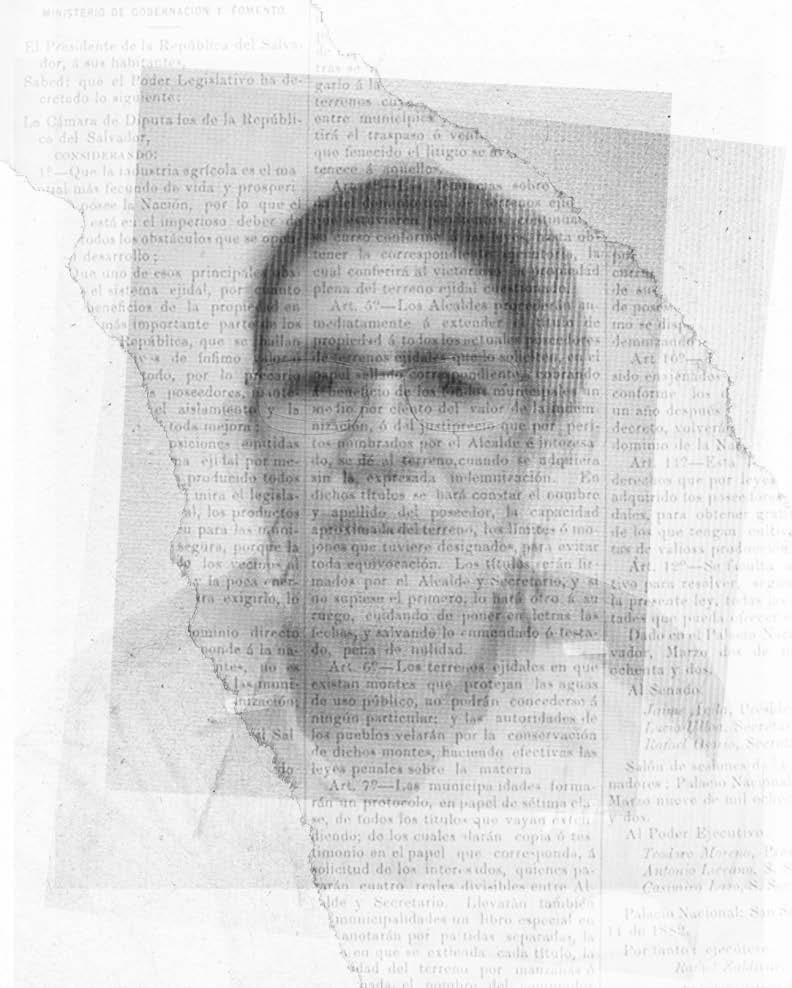
Toronto’s Terrestrial Reefs:
BioRock’s Infrastructural Biogeochemical Futures
Student: Cameron Penney
Advisor: Associate Professor Lisa Moffitt
This thesis explores the potential of the self-growing concrete alternative known as BioRock, an underutilized material with various applications relating to repair, prefab, and transitionary spaces. These applications can help relieve cities, like Toronto, from various infrastructural and environmental issues, informing new design proposals for future urbanization. BioRock subscribes to the merger of biotechnology, nature-based solutions, and architecture across scales of the micro technical, meso environmental, and macro speculative.
Jury Comments: This is a very exciting project and demonstrates great promise for future work. The project embraces interdisciplinarity in very productive ways toward nature-based solutions. Including a glimpse of a final resolution in the document was very successful.
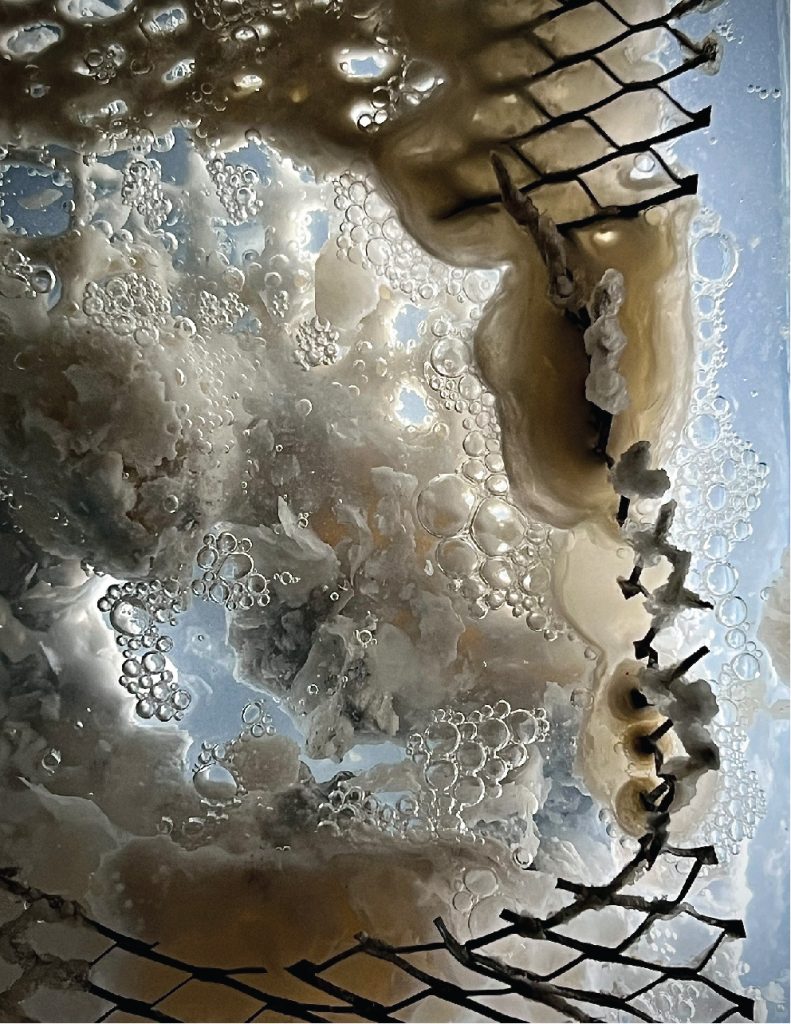
Data at Sea:
Reframing the Canadian Coast Guard Archive
Student: Emma Rath
Advisor: Associate Professor Catherine Bonier
How do we create more equitable and generously designed archival spaces? This thesis interrogates the role of photography in the Coast Guard’s documentation of their ice-breaking missions of the 1980s. During these Arctic missions, the polaroid camera was used to capture snapshots of the impact of the ice breaking, a turbulent moment that resulted in images that are not exact representations but blurred, and further degraded in the decades since their creation.
Jury Comments: The topic is unique and interesting. New forms of archival work are necessary. The attention to documentation and photography produced beautiful artifacts and is commendable.
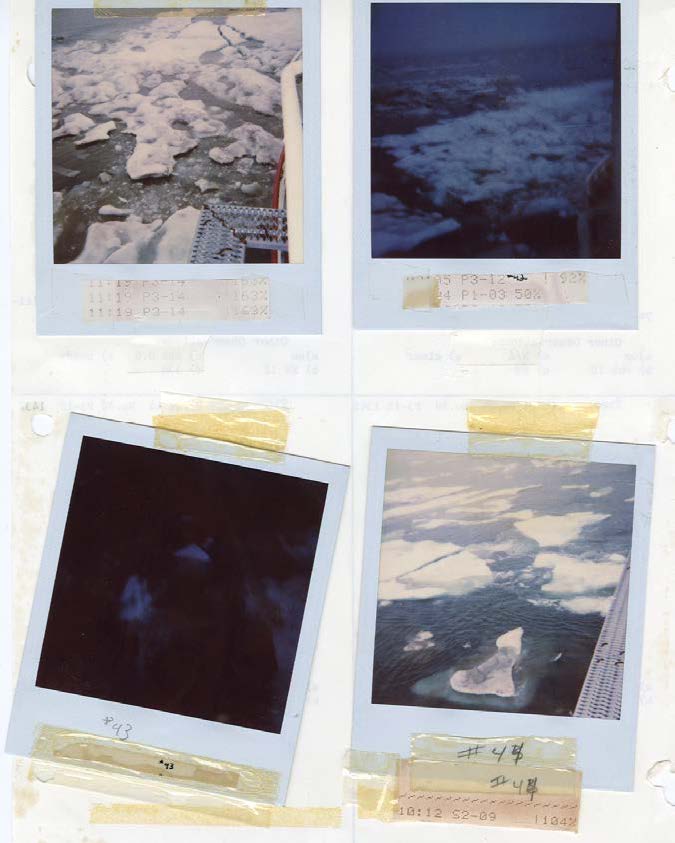
Feminist City:
Reimagining Public Space that Rejects Sexual Violence
Student: Hilary Romaniuk
Advisor: Assistant Professor Menna Agha
This thesis aims to reimagine a public space that actively rejects sexual violence and promotes equitably shared cities. I consult literature and global mapping initiatives that tackle issues of sexual harassment and women+’s safety in public spaces. This study aims to centre the body by drawing from feminist mapping initiatives, namely Body Mapping. Ultimately, the mapping aims to make women+s struggle visible and seeks a better understanding of our positions, rights, and possibilities in public space.
Jury Comments: This is a bold and emotionally charged proposal. The topic is very important and creating new methods of community consultation is incredibly necessary. The body mapping results are very beautiful. The thesis engages novel forms of research for marginalized sectors of the population, and this is extremely relevant.
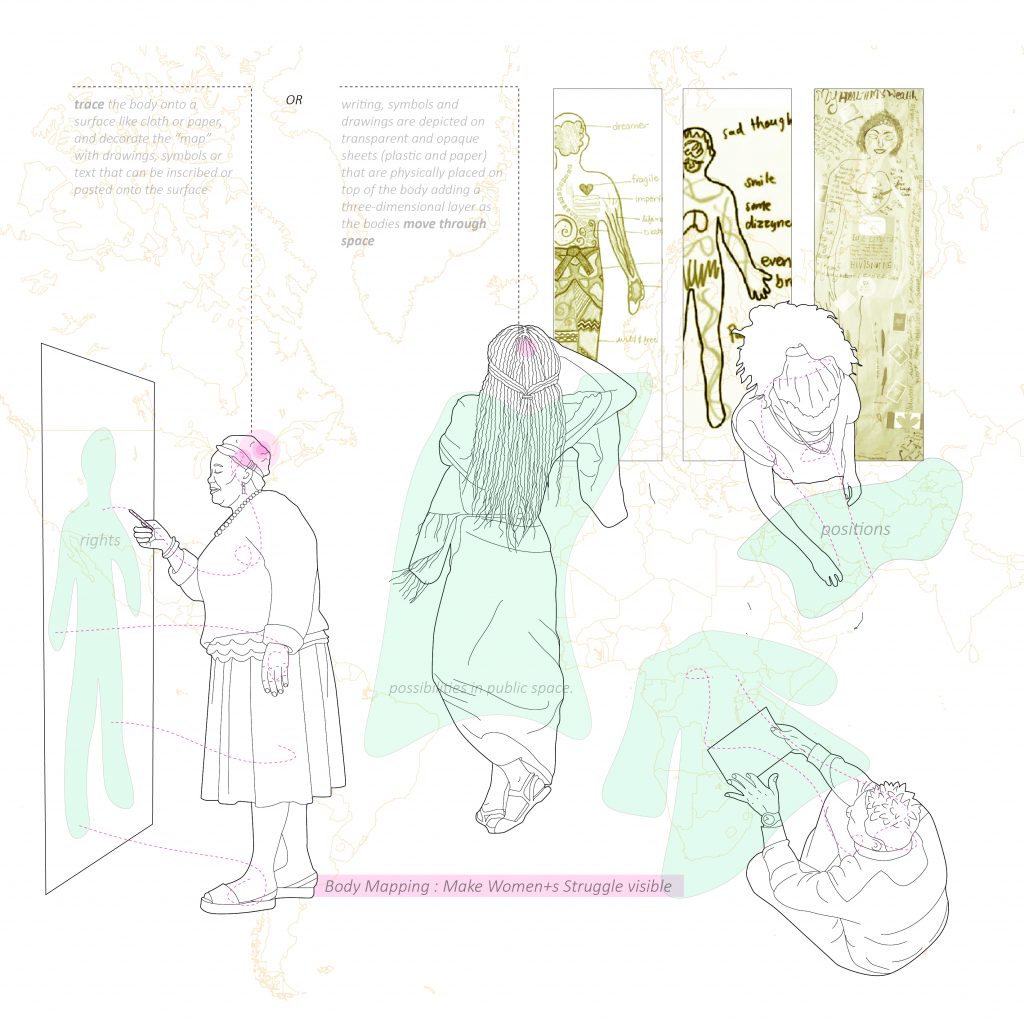
Ecocentric Architecture:
A Counterproposal for Pierrefonds West
Student: Jillian Weinberger
Advisor: Associate Professor Lisa Moffitt
The Cap Nature development project, an anthropocentric design project, would have contributed to Montreal’s residential needs at the expense of damaging the local ecology. Using this project and its site, I am developing counter-design proposals for the area that centre on ecocentric design methods, prioritizing entire ecologies rather than only human desires. This body of work will propose an architectural typology that reprioritizes wildlife, habitat construction, and cohabitation between human and non-human species.
Jury Comments: The project engages a confluence of two edge conditions: the peri-urban and the suburban, and this is an interesting premise. There is a great deal of potential in mixing ecology and urbanism in an edge condition. The time and attention given to the document were much appreciated, and it was enjoyable to read.
